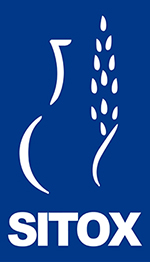A health economic evaluation of using N-terminal pro brain natriuretic peptide for the management of acute heart failure: A pilot study in an Indonesian tertiary referral hospital

Submitted: 7 November 2018
Accepted: 4 February 2019
Published: 29 April 2019
Accepted: 4 February 2019
Abstract Views: 1089
PDF: 459
APPENDIX: 157
APPENDIX: 157
Publisher's note
All claims expressed in this article are solely those of the authors and do not necessarily represent those of their affiliated organizations, or those of the publisher, the editors and the reviewers. Any product that may be evaluated in this article or claim that may be made by its manufacturer is not guaranteed or endorsed by the publisher.
All claims expressed in this article are solely those of the authors and do not necessarily represent those of their affiliated organizations, or those of the publisher, the editors and the reviewers. Any product that may be evaluated in this article or claim that may be made by its manufacturer is not guaranteed or endorsed by the publisher.

 https://doi.org/10.4081/ecj.2019.7919
https://doi.org/10.4081/ecj.2019.7919








